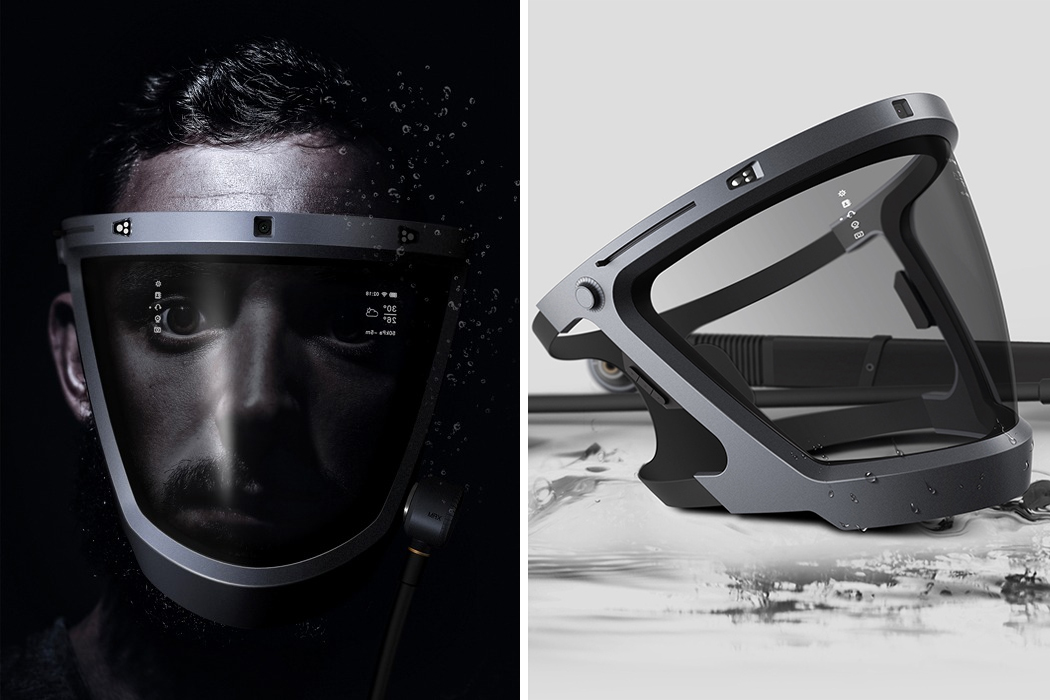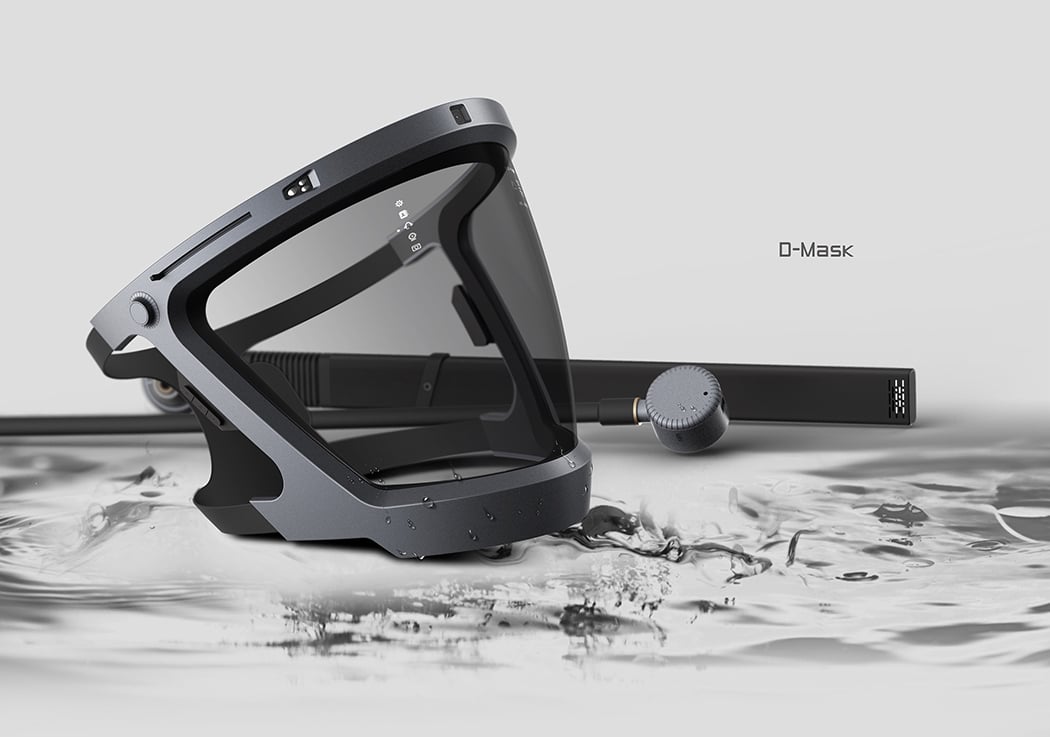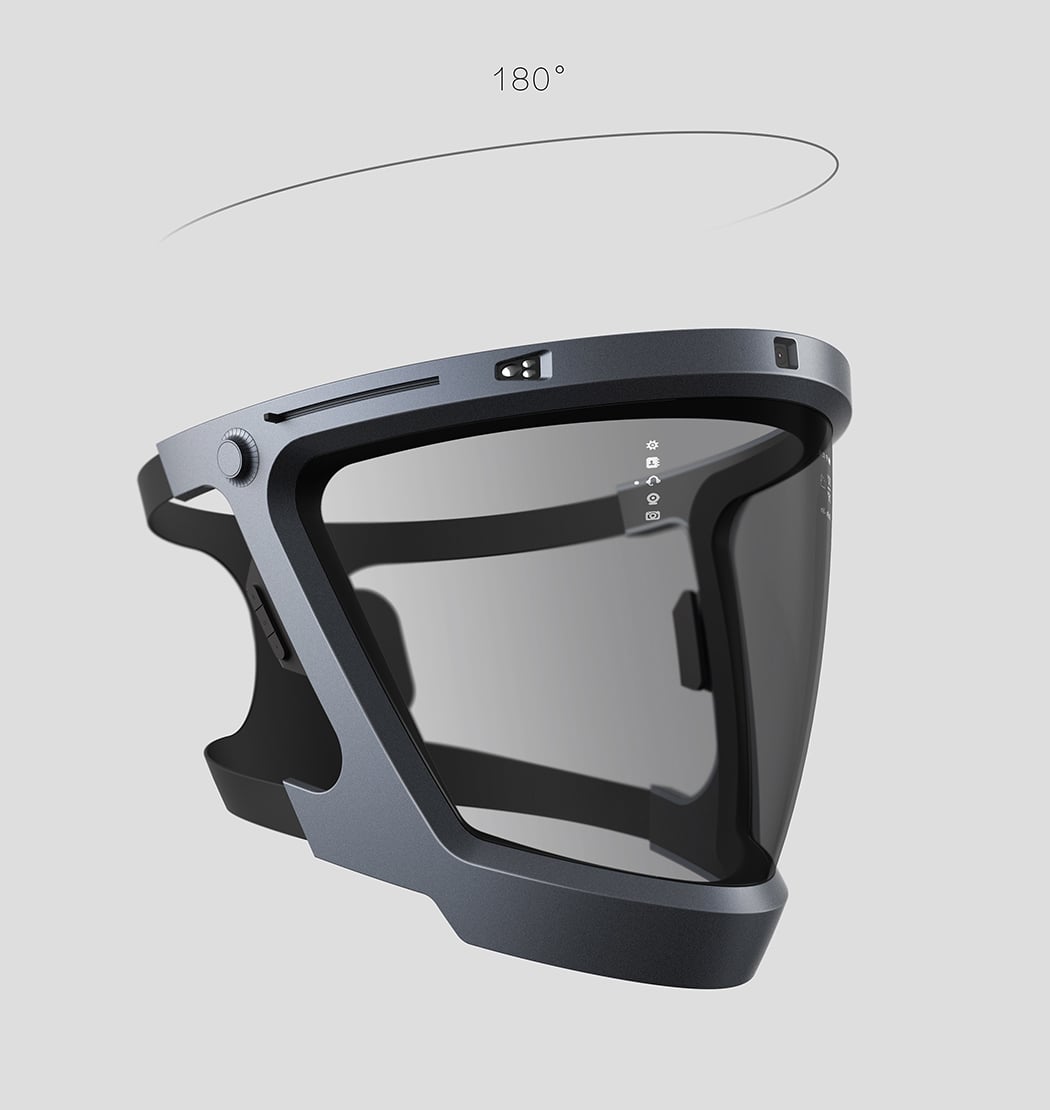
Wearable tech designs make our lives easier and more efficient in multiple ways! From smartwatches, Fitbits to VR headsets, innovative tech designs can be valuable additions to our daily lifestyles. And, not to mention sometimes they’re really fun to use and trendy to wear. One thing we do know is that masks are not going anywhere – what we can expect to see are more futuristic masks that improve the user experience without affecting the efficiency, tech that makes working from home easy while you juggle the dreaded work-life balance, and finally, tech that keeps your health up front and center. We’ve curated the top ten wearable tech designs of 2020, and I’m sure you’ll be dying to get your hands on them!


This ultramodern twist on underwater specs, called D-Mask, addresses many of the issues divers currently encounter. Secured around the forehead, jaw, and chin, the design may cover the full face, but the result feels less restrictive than traditional goggles. While it’s usable on its own, by simply connecting the unit to an air tank, users can breathe easily and more naturally without the need for a sealed mouthpiece. It’s also equipped with an innovative bone-conduction radio system that makes it possible to enjoy tunes or communicate with other divers conversationally – something that was impossible and limited to basic sign language before.
A portable, wearable, air conditioner is no more a thing of futuristic TV shows. The Reon Pocket is a smartphone-controlled personal gadget that was designed to be compact and cool. It works using thermoelectric cooling and can cool the user’s body temperature by 13 degrees celsius (23 degrees Fahrenheit) and raise your temperature by about 8 degrees Celsius (about 14 degrees Fahrenheit). Reon sits on the base of your neck in a special undershirt designed for it. It uses the Peltier effect which means a temperature difference is created by applying a voltage between two electrodes connected to a sample of semiconductor material. The heat is absorbed or emitted when you pass an electrical current across a junction to either lower your temperature or increase it without bulk or noise.
With an undeniably better form factor, and better image quality too, Panasonic’s VR glasses are classier and well, ‘glassier’ (as opposed to the massive ski-goggles that most VR headsets look like). Fitted with micro-OLED panels on the inside, the VR glasses can afford to be made smaller and have much better clarity too. In fact, unlike most VR headsets, you almost don’t notice the pixels in Panasonic’s product, allowing your VR world to be much more immersive because of its higher resolution. Panasonic also claims that they’re the first-ever VR glasses to support HDR, or a high dynamic range, allowing colors, saturation, brightness, and contrast to all be incredibly lifelike.
This wearable fitness tracker-looking ring is actually a mouse designed to be as lightweight as possible so there isn’t excess load on your joints. The ring mouse’s design works intuitively, it reacts to the movements of the fingertips and does not interfere with the natural movement of the wrist since it is a wearable ring. Due to its unique shape for a mouse, it makes the experience smoother while reducing the stress on your wrists as it won’t be awkwardly bent at an angle for hours! The ring has sensors that provide the functionality of a mouse such as ‘click’, ‘sweep’, ‘scroll’ through different gestures that are similar to how we use the trackpads on a laptop.
Embodying Google’s playful-serious aesthetic, the Pixel Smartwatch concept comes in a traditional round format, and in a variety of quirkily named colors. The Android Wear OS logo displays clearly on the always-on display of the watch, transforming into a colorful set of watch hands every time you look at it to read the time. The watch comes with Google’s top-notch voice AI, all of Google’s native apps, and a heart-rate monitor on the back, which ties in well with Google’s plan of acquiring Fitbit and their entire fitness-tech ecosystem.
NASA has designed Pulse, a DIY wearable necklace, that warns you when you are about to touch your face. It works on a simple mechanism – the necklace has a sensor that detects when the user lifts their hands towards their face and it will vibrate to warn them using power from a common button battery. This vibration is a reminder for the user to not touch their face and soon establishes the muscle memory required to turn this into a new behavioral pattern. All the necessary STL files, the list of the parts you’ll need, and the assembly instructions have been made freely available for anyone to make these.
The VOIXATCH made waves on the tech circuits especially after a demonstration at the Mobile World Congress last year. Grabbing eyes as the first smartwatch with a built-in Bluetooth headset, the VOIXATCH helped unveil a world where watch and earphones were part of a tight ecosystem as one single product that did practically everything your phone could, without you needing to take your phone out. The VOIXATCH smartwatch comes equipped with LTE and GPS, has its own SIM card slot, a Google voice assistant, a heartbeat sensor, a gyroscope, and a battery life of 48 hours. That, however, isn’t the most impressive bit about the VOIXATCH, because embedded within its bezel is a detachable ring that turns into a Bluetooth headset.
Halo’s most exclusive feature is the fact that it creates a 3D model of your body and tracks the emotional tone in your voice for an even more personalized wellness journey. Technology with EQ (emotional quotient) capabilities are rare and mostly seen in experimental robots. The existing trackers can probably get an idea about your feeling through heart rate but evaluating your emotions through your voice is new in wearables. Another thing that sets it apart from others in the market is that it doesn’t have a screen which indicates that Amazon wants to focus less on sports and more on lifestyle changes.
Hapbee is the world’s first wearable that lets you feel calm, alert, focused, relaxed, or sleepy on command! Will it be revolutionary or just take us one step closer to becoming androids? While it may seem like a device straight out of a Black Mirror episode, Hapbee (which comes from the word ‘happy’) actually wants to make life easier by giving us the capability to balance and control our emotions. It uses electromagnetic frequencies that are even lower than your phone’s to better your mental health without causing any permanent changes to who you really are.
The GOOVIS Young comes with a cable that connects via USB-C to a wide host of devices, acting as a display for them… much like how you plug a pair of headphones into your device for dedicated audio, the GOOVIS Young does the same, but for dedicated video. By cutting the clutter and not having its own CPU, motherboard, graphics card, and memory, and by purely being a high-definition display, the GOOVIS Young reduces its design footprint and comes in a slick form factor that folds up to be thin enough to slip into your backpack.